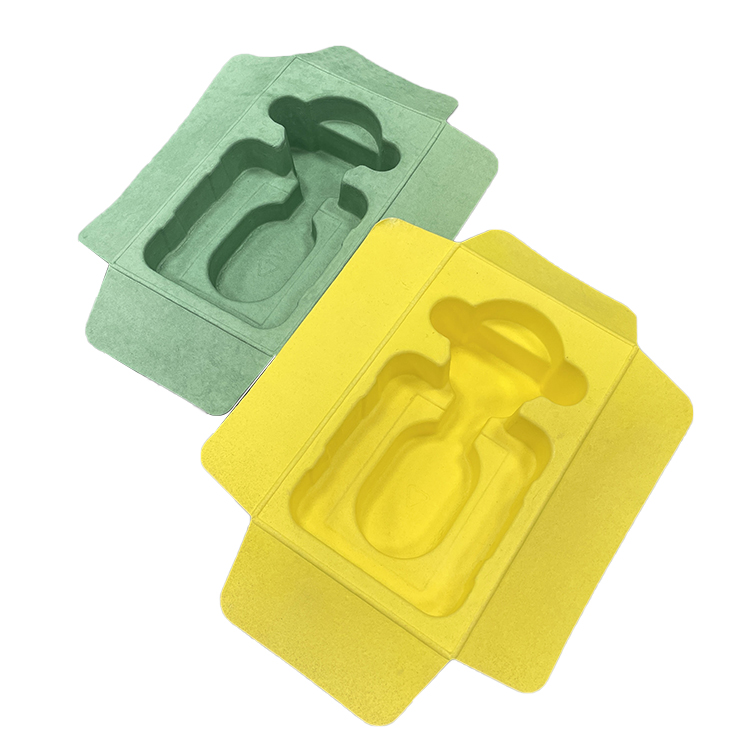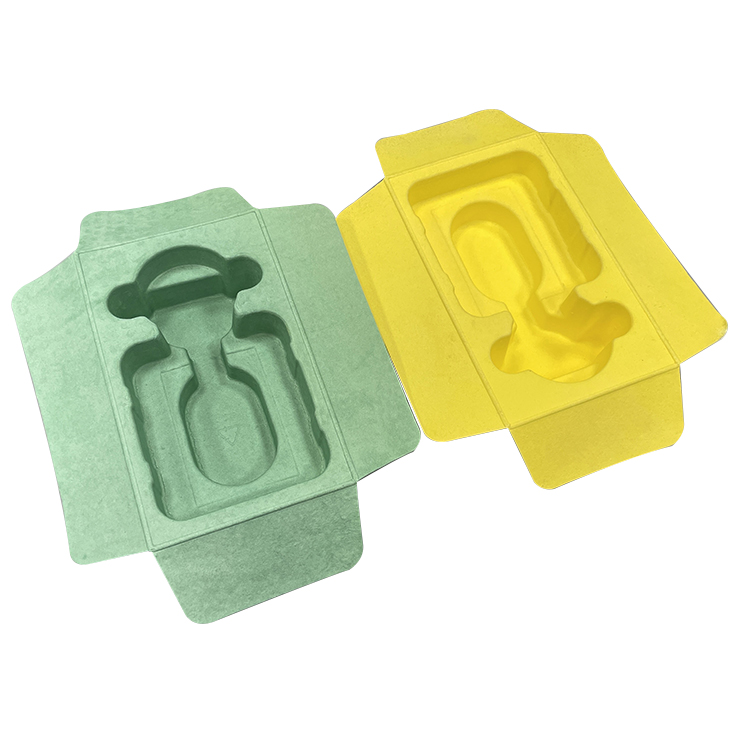Bagasse pulp trays have gained popularity in recent years as a sustainable alternative to traditional packaging materials. Made from the fibrous residue left behind after sugarcane processing, these trays offer a biodegradable and eco-friendly solution for various industries. But how long do bagasse pulp trays actually last? Let's delve into the durability of this innovative packaging option.
Understanding Bagasse Pulp Molded Packaging
Bagasse pulp trays are crafted through a process known as molded pulp manufacturing. During this process, bagasse pulp, obtained from sugarcane waste, is mixed with water and molded into various shapes using specialized equipment. The resulting trays are sturdy yet lightweight, making them suitable for a wide range of applications, from food packaging to electronics.

Factors Influencing Durability
Several factors influence the longevity of bagasse pulp trays:
- Moisture Resistance: Bagasse pulp trays exhibit varying degrees of moisture resistance depending on their manufacturing process and additional treatments. While some trays are designed to withstand moderate moisture levels, prolonged exposure to liquids can compromise their integrity.
- Temperature Sensitivity: Extreme temperatures can affect the structural integrity of bagasse pulp trays. High temperatures may cause the trays to soften or deform, while freezing temperatures can make them brittle and prone to cracking.
- Handling and Storage: Proper handling and storage are crucial for maintaining the durability of bagasse pulp trays. Rough handling or improper stacking can lead to damage, reducing the lifespan of the trays.
Lifespan of Bagasse Pulp Trays
The lifespan of bagasse pulp trays varies depending on their usage and environmental conditions. In general, these trays can last anywhere from a few days to several months, depending on factors such as:
- Single or Multiple Uses: Bagasse pulp trays are typically designed for single-use applications, such as serving food items or holding retail products. However, with proper care and handling, they can be reused multiple times before reaching the end of their lifespan.
- Exposure to Moisture: Exposure to moisture can accelerate the degradation of bagasse pulp trays. Trays used for wet or oily food items may deteriorate more quickly than those used for dry products.
- Storage Conditions: Storing bagasse pulp trays in a dry, cool environment away from direct sunlight can help prolong their lifespan. Excessive heat, humidity, or sunlight can expedite the degradation process.
Benefits of Bagasse Pulp Trays
Despite their finite lifespan, bagasse pulp trays offer numerous benefits:
- Sustainability: Bagasse pulp trays are biodegradable and compostable, making them an environmentally friendly alternative to traditional plastic packaging.
- Renewable Resource: Sugarcane, the source of bagasse pulp, is a renewable resource that replenishes rapidly, ensuring a sustainable supply of raw materials for tray production.
- Versatility: Bagasse pulp trays come in various shapes and sizes, catering to diverse packaging needs across industries ranging from food service to retail.
In conclusion, while bagasse pulp trays may not last indefinitely, they offer a viable solution for sustainable packaging needs. By understanding the factors influencing their durability and implementing proper handling and storage practices, businesses can maximize the lifespan of these eco-friendly trays. As consumer demand for environmentally conscious products continues to rise, bagasse pulp trays remain a promising option for reducing environmental impact and promoting sustainability.


